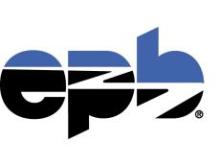EPB and Chattanooga Will Lower Price of Internet for Low Income Students
In an effort to extend the benefits of its gigabit network to lower income Chattanooga school kids, Mayor Andy Berke announced that the EPB will soon offer the "Netbridge Student Program."
WDEF reports that children will qualify for the program if they are enrolled in Hamilton County schools and are currently enrolled in the free or reduced price lunch program. Comcast's Internet Essentials uses the same eligibility criteria. Households that qualify will be able to sign up for 100 Mbps service for $26.99 per month. Details are still being discussed.
Last year, Hamilton County schools replaced a number of textbooks with iPads in an attempt to take advantage of Chattanooga's fiber asset to improve student performance. The move revealed a grim reality - that many students' access to that incredible gigabit network (or any network) stopped when they walked out of the school. Educators found that children with Internet access at home made significant strides while those without fell behind. From a December 2014 article on Internet and Chattanooga students:
In the downtown area, for example, only 7 percent of potential customers subscribe to high-speed broadband Internet. In economically depressed areas such as Alton Park and East Lake, only 15 percent of residents have high-speed Internet, according to EPB.
We spoke with Danna Bailey, Vice President of Corporate Communications from EPB, to get some details on the plan and she confirmed that the program is still in its infancy; officials at EPB plan to have it ready for students by the fall. She told is that the rate of $26.99 is what EPB must pay to bring 100 Mbps to a customer when it is unbundled. The regular rate is $57.99.







